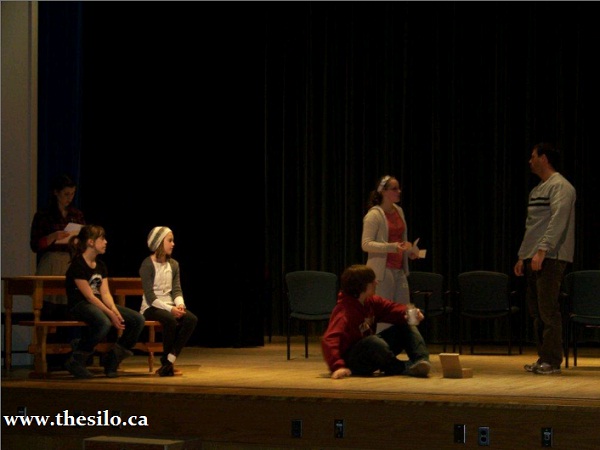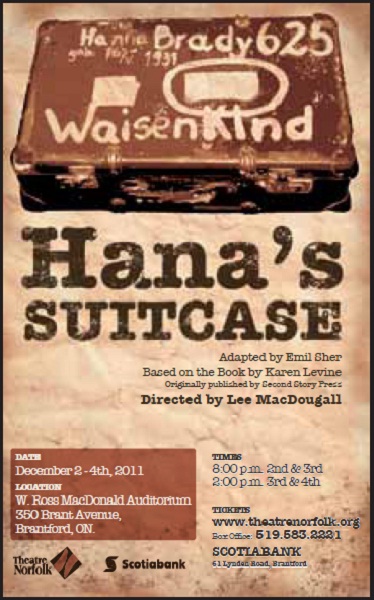Definition of art is very difficult to pin down. As an oil painter I look at art one way. An actor would think of it another way. But really the definition doesn’t matter all that much. Art surrounds us wherever we are, if only we choose to see it. Sometimes though, we need to be reminded of that.
When I entered the concentration camp at Terezin in the Czech Republic that November day, the last thing I thought I would see was art. I didn’t know that the children who lived there drew pictures, coloured them, and even wrote poems. But there they were. The paintings and words hung up on the museum wall. The wall was at least 50 feet high. They had miraculously survived Terezin, even when the children themselves had not. I stood in front of that wall for a long time, hesitant to leave. Afraid that maybe I would need reminding again once I was back home.
Fast forward a year and Terezin has touched my life again. Hana’s Suitcase, which is set in Terezin, is being presented by Theatre Norfolk and COMPASS Theatre Productions, in partnership with W. Ross MacDonald School for the Blind, and I had the opportunity to meet the cast and talk about my experiences at Terezin. I also had the opportunity to watch renowned actor and director Lee MacDougall guide the cast of talented local and emerging actors through the paces of this emotional, heart wrenching play which took me right back to that wall.

In this play child actors play some of the main characters. Hana was sent to Terezin when she was 11. This play is being performed for over 1200 students in Grades 4-12; Children teaching children and because this play is for everyone; children teaching adults. It speaks to hatred and intolerance. It also speaks to hope and beauty. It’s amazing how children are able to see both at the same time. I wonder when we, as adults, forget how to do that.
I hope that you will take the time to see Hana’s Suitcase and be reminded of all the things that you should never forget while watching art at its finest.
Hana’s Suitcase, adapted by Emil Sher based on the book by Karen Levine, is being presented at W. Ross MacDonald Auditorium Dec. 2nd, 3rd & 4th. Tickets are on
sale at Scotia Bank, Lynden Road, and at the Lighthouse Festival Theatre. For more info and to purchase tickets visit Silo Direct Link to Theatre Norfolk Website
By Karen Wilson. Silo Direct Link to Karen’s artsco Gallery Page



Leave a Reply
You must be logged in to post a comment.